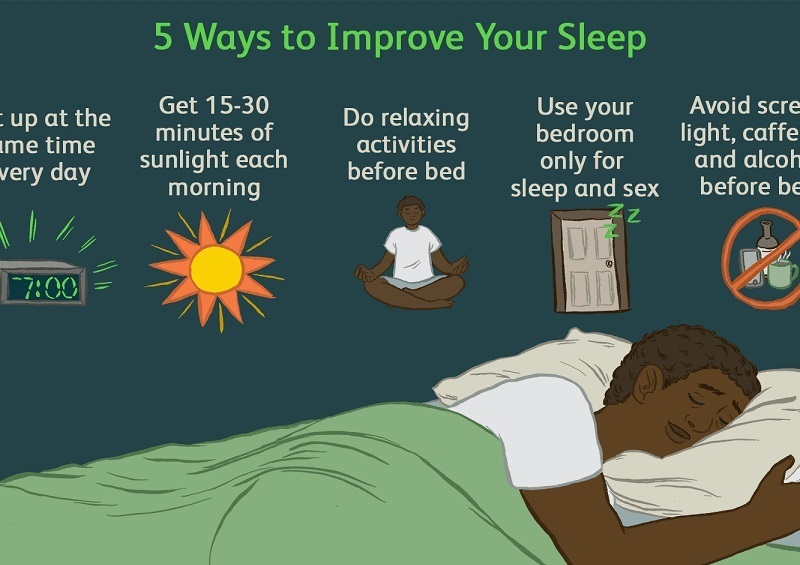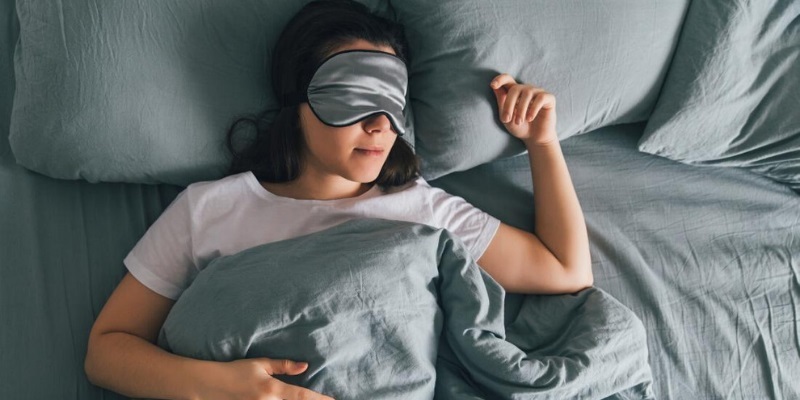
Tired of tossing and turning at night? These Effective Methods will help you with quality sleep and be fiercer and more useful during the day. A good night’s sleep is just as significant as regular exercise and a solid eating routine.
Wondering about Other Factors that can disrupt a good night’s sleep — from work pressure and family responsibilities to unforeseen difficulties, like illnesses. It’s no big surprise that quality sleep is sometimes tricky.
Research demonstrates that poor sleep has immediate adverse consequences on your hormones, exercise performance, and mind work. It can likewise cause weight gain and increment disease risk in both youngsters and adults.
In contrast, good sleep can assist you with eating less, exercising better, and being healthier. Over the past few decades, both sleep quantity and quality have declined. Indeed, many individuals consistently get poor sleep. To upgrade your health or get in shape, getting a decent night’s sleep is one of the main things you can do.
How Exercise May Help You Sleep
Scientists don’t see how physical activity improves sleep. “We may always be unable to pinpoint the component that clarifies how the both are connected,” she says.
Notwithstanding, we, in all actuality, do know that moderate oxygen-consuming activity expands the amount of slow-wave sleep you get. Slow-wave sleep alludes to deep sleep, where the mind and body get an opportunity to restore. Exercise can likewise assist with stabilizing your mood and de-pressurize the brain, “an intellectual cycle that is significant for naturally transitioning to sleep,” says Gamaldo
However, different things work for other people, so take some time to experiment with what works.

Here Are Some Effective Methods Can Make the Quality of Sleep Better
Shut Down
The soft blue light from a wireless tablet or mechanical clock on your bedside table might hurt your sleep.
Thus, switch off TVs, PCs, and other blue-light sources an hour before you head to sleep. Cover any displays you can’t shut down.
Improve Your Sleep Environment
A peaceful, dark, and cool climate can help promote sound sleep. To accomplish such a climate, bring down the volume of outside clamor with earplugs or a “background noise.” Utilize heavy curtains, blackout shades, or an eye mask to impede light, a strong cue that lets the mind know it’s an ideal time to wake up. Keep the temperature comfortably cool—somewhere between 60 and 75°F—and the room is very much ventilated. Furthermore, ensure your space is outfitted with comfortable pillows and mattresses.
Use Sleep Aid Aromatherapy
Aromatherapy-based treatment includes breathing in oil aromas or fumes to improve health. Research shows that since smell influences sleep, joining specific medicinal oils into your sleep time routine might help people sleep better.
Avoid Caffeine Near Bedtime
Caffeine is in coffee, tea, caffeinated beverages, and then some. It’s an energizer, which implies it can help keep you conscious and alert. That is something you may need in the first part of the day. However, at night, it can leave you thrashing around in bed. To help you sleep, limit how much caffeine you have during the day, and change to decaf or without caffeine drinks in the evening.

Seal Your Mattress
Wheezes, sneezes, and irritation from allergies can prompt lousy shut-eye. Your mattress might be the cause. Over the long haul, it can load up with the shape, dust vermin droppings, and other allergy triggers. Seal your sleeping pad, box springs, and pillows to keep away from them. Air-tight, plastic, dust-proof covers work best.
Focus on What You Eat and Drink
Don’t go to bed hungry or stuffed. Specifically, stay away from large or heavy meals inside several hours of sleep time. Your distress may keep you up.
Nicotine, caffeine, and liquor deserve caution, too. The stimulating impacts of nicotine and caffeine require hours to wear off and can destroy quality rest. Furthermore, although alcohol may help you to feel drowsy, it can disrupt sleep later in the night.
Try Meditation or Mindfulness
Mindfulness and Meditation can help with decreasing nervousness, which regularly upsets sleep. Utilizing these methods can assist with quieting a restless psyche, diverting the people from occupied musings and permitting them to nod off more without any problem.
A review of older grown-ups with resting hardships observed that mindfulness meditation improved rest quality, contrasted with individuals who didn’t practice mindfulness.
Build up a Soothing Pre-Sleep Routine
Facilitate the change from wake time to rest time with relaxing activities an hour or so before bed. Scrub down, read a book, stare at the TV, or practice unwinding works out. Stay away from upsetting, restorative exercises—taking care of business, talking about intense subject matters. Truly and mentally upsetting activities can make the body discharge the pressure chemical cortisol, related to expanding sharpness. Assuming you will more often than not take your concerns to bed, take a stab at thinking of them down—and afterward setting them to the side.


Can you be more specific about the content of your article? After reading it, I still have some doubts. Hope you can help me.
Thank you for your sharing. I am worried that I lack creative ideas. It is your article that makes me full of hope. Thank you. But, I have a question, can you help me?
I’m still learning from you, as I’m trying to achieve my goals. I definitely enjoy reading everything that is written on your blog.Keep the tips coming. I liked it!
Wow, wonderful blog layout! How long have you been blogging for? you make blogging look easy. The overall look of your website is fantastic, as well as the content!
Great post. I was checking continuously this blog and I’m impressed! Very useful information specifically the last part 🙂 I care for such info much. I was seeking this particular info for a very long time. Thank you and good luck.
Thanks for sharing. I read many of your blog posts, cool, your blog is very good.